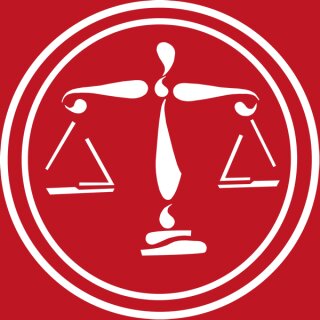Best Drunk Driving Lawyers in Asunción
Share your needs with us, get contacted by law firms.
Free. Takes 2 min.
List of the best lawyers in Asunción, Paraguay
About Drunk Driving Law in Asunción, Paraguay
In Asunción, Paraguay, drunk driving is a serious offense with stringent laws and penalties. The country's legislation aims to ensure road safety by deterring individuals from operating vehicles under the influence of alcohol. The legal blood alcohol concentration (BAC) limit is set at 0.05%, and for professional drivers, it is 0%. Law enforcement conducts regular checkpoints, and violations can result in heavy fines, license suspension, and even imprisonment.
Why You May Need a Lawyer
There are several circumstances under which individuals may need legal representation when facing a drunk driving charge in Asunción:
- If you are charged with driving over the legal BAC limit and face potential criminal charges.
- In cases where an accident has occurred resulting in injuries or fatalities, implicating drunk driving.
- If your driving privileges are at risk of being suspended or revoked.
- When disputing the accuracy of the breathalyzer or field sobriety tests.
- If you are a repeat offender with prior drunk driving charges.
Local Laws Overview
The following are key aspects of the laws related to drunk driving in Asunción:
- Blood Alcohol Concentration Limits: The legal limit is 0.05% for the general public and 0% for public transport operators.
- Penalties: Fines can range from ₲1,500,000 to ₲3,000,000, depending on the severity of the offense. Repeat offenders face harsher penalties.
- License Suspension: Driving permits can be suspended for up to a year upon a first offense, with longer suspensions for subsequent offenses.
- Imprisonment: In cases of severe violations, offenders may face incarceration ranging from a month to several years.
- Rehabilitation Programs: Some offenders may be required to attend educational courses on traffic safety and alcohol misuse.
Frequently Asked Questions
What constitutes a drunk driving offense in Asunción?
A drunk driving offense occurs when an individual operates a vehicle with a BAC of 0.05% or higher. For specific categories like public transport drivers, any detectable amount of alcohol results in an offense.
What should I do if I'm pulled over for suspected drunk driving?
Remain calm and cooperate with the police officers. You are required to provide your identification and comply with their requests for BAC testing, such as a breathalyzer. Consulting a lawyer promptly is advisable.
Can I refuse a breathalyzer test?
Refusing a breathalyzer test comes with severe penalties, including automatic license suspension and fines. This refusal may be treated as an admission of guilt.
How can I challenge a drunk driving charge?
You can challenge a charge by seeking legal counsel to dispute the accuracy of the BAC test results or the legality of the traffic stop. A lawyer can help navigate these defenses in court.
What are the consequences of a first-time offense?
A first-time offense usually results in a fine and a possible suspension of your driving license. The extent of these penalties depends on the specific circumstances of the offense.
Will a drunk driving charge affect my criminal record?
Yes, being convicted of a drunk driving charge in Paraguay will result in a criminal record, which can have long-term effects on employment and other aspects of life.
Are there any alternatives to serving a jail sentence?
In some cases, offenders may have the option to attend rehabilitation programs or community service in lieu of incarceration, especially in first-time offenses.
How long does a drunk driving charge stay on my record?
A drunk driving charge can stay on your legal record for several years, affecting your ability to drive and influencing future charges.
Can a foreigner be charged with drunk driving in Paraguay?
Yes, foreigners can be charged and penalized for drunk driving offenses in Paraguay. The legal process generally follows the same procedures as for local residents.
What is the role of a lawyer in a drunk driving case?
A lawyer can help by providing expert advice, representing you in court, negotiating lesser penalties, and ensuring your rights are upheld throughout the legal process.
Additional Resources
Consider reaching out to the following resources for assistance with drunk driving cases in Asunción:
- Dirección Nacional de Transporte (DINATRAN): An administrative body handling traffic and transportation regulations.
- Ministerio Público: Offers resources for legal proceedings and information on traffic-related offenses.
- Local Legal Aid Organizations: These provide free or low-cost legal services for those who qualify.
- Platform for Road Safety Initiatives in Paraguay: These organizations offer educational resources and preventative measures on drunk driving.
Next Steps
If you find yourself in need of legal assistance due to a drunk driving charge in Asunción, consider taking the following steps:
- Consult with a Reputable Lawyer: Seek out a lawyer who specializes in traffic law and drunk driving cases to understand your legal options.
- Collect Relevant Documentation: Keep any police reports, BAC test results, and any other related documents readily available for your lawyer.
- Understand Your Rights: Familiarize yourself with your legal rights and obligations to prepare for the legal process ahead.
- Attend Required Court Dates: Ensure that you comply with all court appearances and legal obligations.
- Consider Rehabilitation Programs: If applicable, engage in recognized rehabilitation programs which could aid in mitigating penalties.
Following these steps can help you effectively navigate the legal process and potentially minimize the consequences of your situation.
Lawzana helps you find the best lawyers and law firms in Asunción through a curated and pre-screened list of qualified legal professionals. Our platform offers rankings and detailed profiles of attorneys and law firms, allowing you to compare based on practice areas, including Drunk Driving, experience, and client feedback.
Each profile includes a description of the firm's areas of practice, client reviews, team members and partners, year of establishment, spoken languages, office locations, contact information, social media presence, and any published articles or resources. Most firms on our platform speak English and are experienced in both local and international legal matters.
Get a quote from top-rated law firms in Asunción, Paraguay — quickly, securely, and without unnecessary hassle.
Disclaimer:
The information provided on this page is for general informational purposes only and does not constitute legal advice. While we strive to ensure the accuracy and relevance of the content, legal information may change over time, and interpretations of the law can vary. You should always consult with a qualified legal professional for advice specific to your situation.
We disclaim all liability for actions taken or not taken based on the content of this page. If you believe any information is incorrect or outdated, please contact us, and we will review and update it where appropriate.












